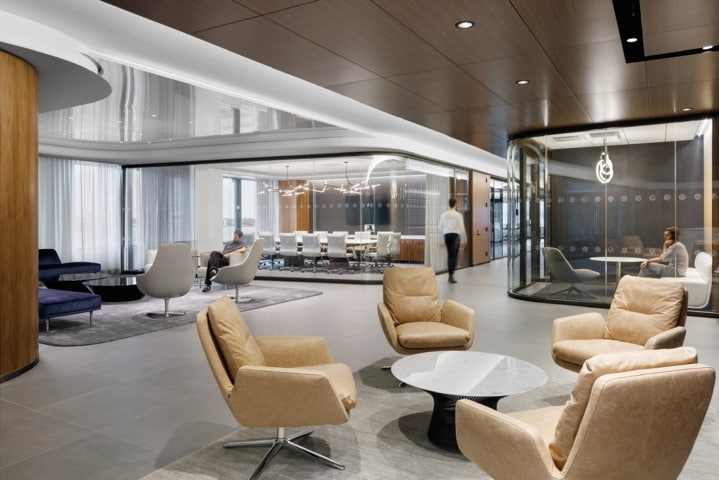While sales are present in almost all industries, the most common we see and hear about is sales in retail, finance and insurance, technology, manufacturing, food and beverage, and manufacturing sectors. In the architecture and construction sectors, sales is typically done more for the services involved in the project rather than the products. Thus, the architectural products sales position may be something unfamiliar among sales professionals and candidates.
In this article, we will discuss the scope of architectural and construction product sales, including ways on how to sell products such as demountable and partition walls. If you are a sales professional looking to grow your career in the architectural and construction domain and wish to apply as a Regional Sales Manager for a global market leader in custom wall solutions, continue to read our blog and find out what technical knowledge, skills, and competencies you need to succeed in this endeavor.
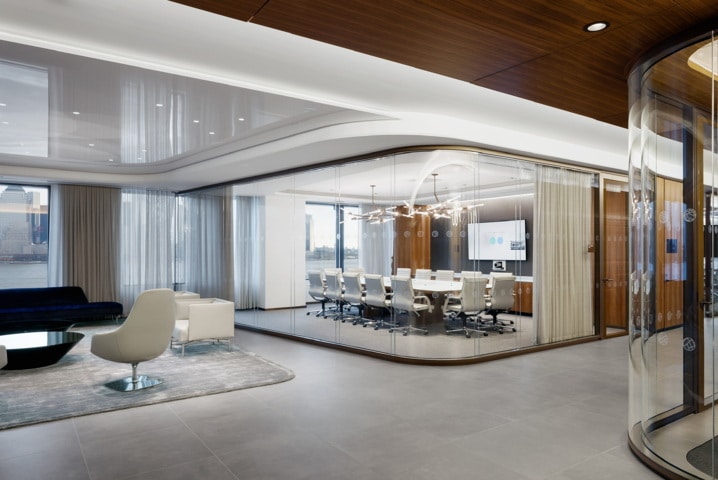
Overview of Architectural and Construction Product Sales
Architectural and construction product sales refer to the process of selling various products and materials used in the construction and design of buildings and structures, including pre and post-sales activities, such as market research, strategic planning, sales prospecting, and lead generation, sales funneling, and after-sales customer support.
This industry plays a critical role in supplying the necessary components for construction projects, ranging from residential homes to commercial buildings and infrastructure projects. The products sold in this industry can vary widely and encompass everything from basic construction materials to specialized architectural products.
Common products and materials offered and sold in architectural and construction sales include the following:
- Basic construction materials, such as cement, concrete, bricks, lumber, steel, roofing materials, insulation, drywall, and plumbing supplies
- Finishing materials and products that add aesthetic appeal and functionality to buildings, such as flooring materials (tiles, hardwood, carpet), paints, coatings, wallpapers, and lighting fixtures
- Architectural elements and products, such as doors, windows, staircases, railings, moldings, decorative panels, and walls.
- Heating, ventilation, air conditioning (HVAC), and electrical components such as wiring, switches, outlets, and electrical panels
- Specialized systems and products related to water management (pipes, pumps, drainage systems), energy efficiency (solar panels, insulation), and smart building technologies (home automation, security systems)
- Outdoor and landscaping products, such as outdoor furniture, paving materials, landscaping features, fencing, and outdoor lighting
To understand their benefits and versatility in architectural projects, we will focus on discussing demountable wall sales for commercial and residential use.

What are Demountable Walls?
Also known as movable walls or modular walls, demountable walls are a partition system used in interior spaces to create flexible and easily reconfigurable divisions. Unlike permanent walls, demountable walls are designed to be easily assembled, disassembled, and relocated without tearing down a huge part of the interior construction and causing significant disruption to the building’s structure or finishes. These walls offer a versatile solution for dividing spaces while maintaining the ability to adapt to changing needs over time.
Demountable walls are popular because of their modularity and flexibility. They are made up of modular components that can be interchanged, rearranged, or replaced, allowing different configurations and modifications of space as needed. Demountable walls are suitable for open-plan offices, commercial environments, and even residential spaces. Available in different designs, finishes, and materials, this wall type enables customization to match the overall aesthetic of the property’s interior look and style.
Due to their flexibility and versatility, demountable walls are found to be useful uses in various industries and spaces. The wide range of uses and applications of modular walls include:
- Office spaces and conference rooms
- Co-working spaces
- Event spaces and trade show platforms
- Educational institutions
- Healthcare facilities
- Retail spaces
- Hospitality industry
- Manufacturing and warehousing
- Residential houses, condo units, and apartments
One of the global leaders in manufacturing custom demountable wall solutions is Maars Living Walls. Although the company is based in the Netherlands, it caters to clients worldwide, including Fort Worth, Dallas, TX. Combining 75+ years of solid experience and its ability to merge innovation, aesthetics, and performance, Maars offers standard and customized demounted walls to private commercial clients and public sectors, including offices, airports, hospitals, schools, factories, cinemas, shops, and hotels. A concept partner of Dallas-based architects, designers, contractors, project developers, and end-users, Maars is a reputable name in the design, finishing, sound insulation, and wall partition domains. They take pride in offering the highest quality and best service in custom partition wall solutions.

Advantages of Demountable Walls
Demountable walls are increasing in popularity and sales due to the practical benefits they offer in the architectural and construction domain. Below are some of the advantages of using demountable walls in offices and other commercial properties.
1. Demountable walls can easily be reconfigured or moved to accommodate changing needs without tedious installation and tearing down.
2. Compared to traditional installation, using demountable walls will save you time and money.
3. Installing demountable walls is often more cost-effective than building permanent walls as they require fewer materials and labor.
4. Installation and reconfiguration of demountable walls are done quickly, reducing disruption and downtime in the space.
5. Because you can reuse these walls in another space for another purpose, you are reducing construction waste and promoting sustainable practices.
6. Most demountable wall systems incorporate soundproofing materials, maintaining privacy and minimizing noise transfer. These are perfect for offices, conference centers, music studios, hospitals, and more.
7. Demountable walls come in various designs, finishes, and materials, enabling customization and personalization.
8. In some cases, demountable walls may be considered movable furniture rather than permanent fixtures, potentially providing tax advantages for businesses.
9. Demountable walls allow users to plan for future changes in workspace requirements without making too much disruption in the space.
10. The design options available for demountable walls can enhance the visual appeal of your office or business space.
Demountable walls offer versatile solutions for creating adaptable and functional spaces across various industries. Their ease of installation, reconfiguration, and sustainability makes them a practical choice for businesses seeking flexibility and efficiency in their spatial design.
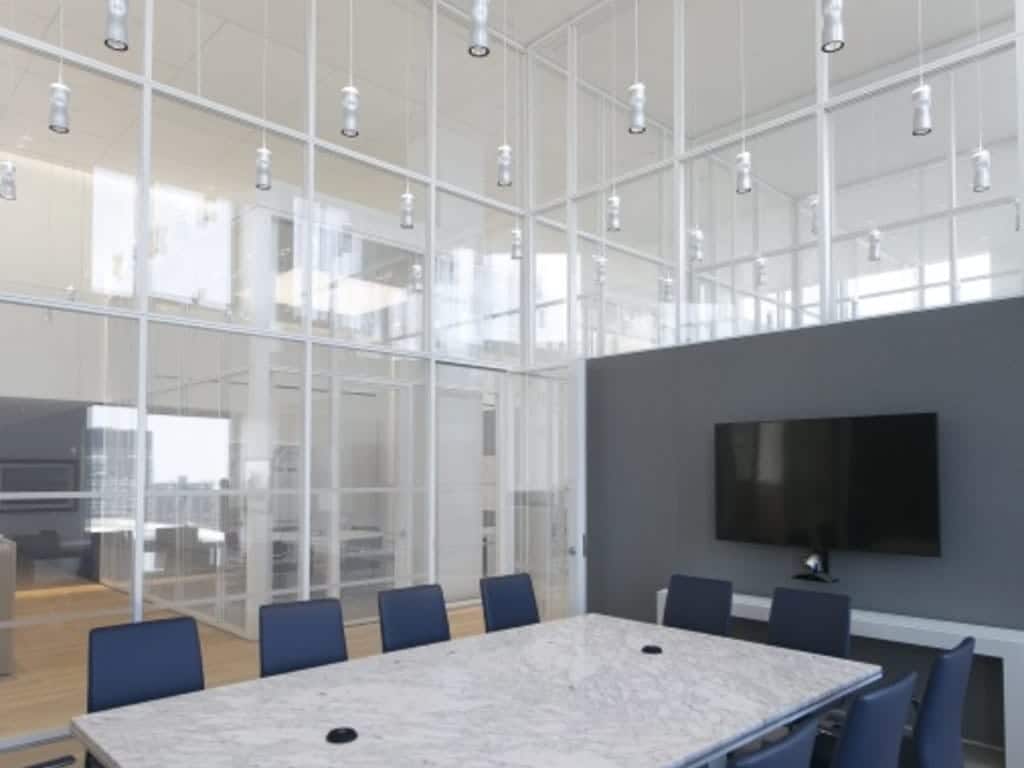
Requirements for Selling Architectural Products such as Demountable Walls
Whether you are a seasoned salesperson looking to grow your career further or you specialize in a different domain but wish to explore opportunities in architectural product sales, selling architectural products such as demountable walls may be something new to you. If this is the case, let’s explore what it takes to become successful in this area.
Technical Knowledge Needed
Working in architectural and construction sales requires some level of technical knowledge, especially if you are vying for a sales managerial role. Having a solid understanding of various technical aspects of selling demountable walls is crucial so that you can effectively communicate with customers, address their needs, and provide accurate information. Below are some key technical knowledge areas that are important when selling demountable walls:
- Product specifications
- Installation process
- Modularity and customization
- Soundproofing and acoustic performance
- Building codes and regulations
- Sustainability and environmental impact of the product
- Structural components
- Electrical integration
- Material finishes
- Aesthetic aspects
- Maintenance and cleaning
- Safety considerations
- Warranty and support
By having a comprehensive grasp of these technical knowledge areas, you can effectively guide customers in all aspects of the sales process—from choosing the right materials and design to discussing with them the use of each component to teaching them how to maintain and take care of their demountable wall systems.
Necessary Skills
Aside from technical knowledge, you also need to maintain and showcase various soft skills that will make you a great fit for an architectural product sales position. Below are the necessary skills that will make you successful in the role:
- Communication skills
- Relationship building
- Active listening
- Problem-solving and decision-making skills
- Comprehensive product knowledge
- Customer-focused approach
- Consultative selling
- Time management and organization
- Negotiation skills
- Presentation skills
- Attention to Detail
- Ethical Conduct
- Ability to follow up and maintain contact
Combining these skills with technical aptitude and a genuine passion for helping customers will make you a valuable asset in selling demountable walls or any other architectural products.
Other Competencies You Need to Develop
Competencies are a set of skills, knowledge, behaviors, and qualities that contribute to success in a specific role. When selling architectural products like demountable walls, the following competencies are particularly relevant:
- Adaptability and flexibility
- Openness to learn new skills
- Resilience
- Strategic thinking
- Team collaboration
- Innovation mindset
- Cultural awareness
These competencies, when developed and effectively applied, can significantly enhance your ability to succeed in selling demountable walls and other architectural products and construction materials.
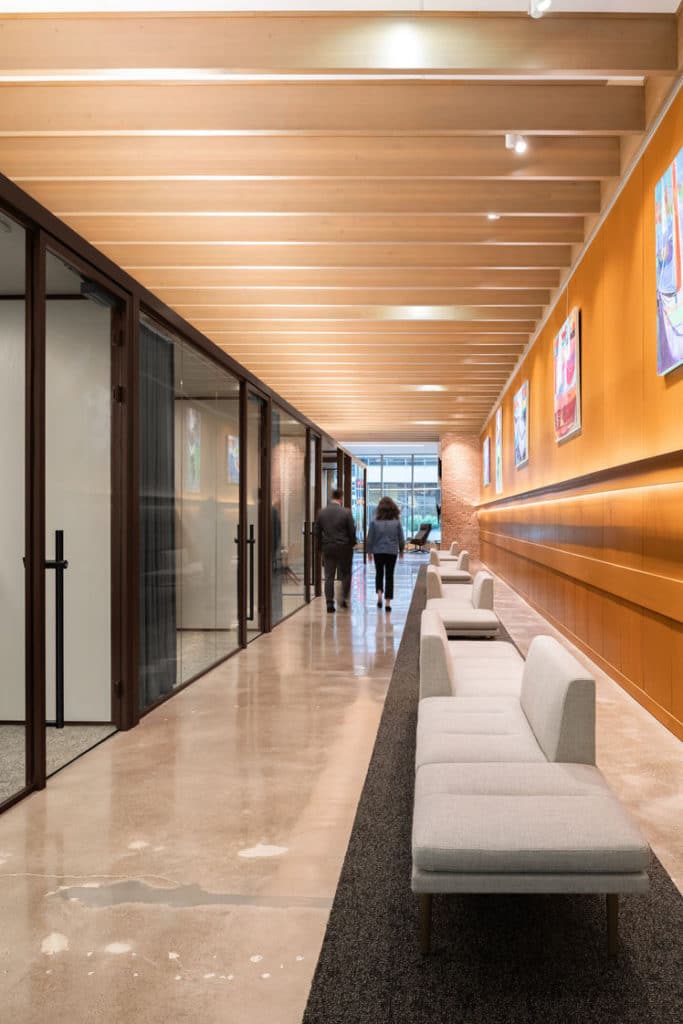
Tips on Selling Demountable Walls and Other Architectural Products
Selling architectural products requires a combination of skills, technical knowledge, and strategies to effectively communicate the value of your products and meet the needs of your clients. Here are some tips to help you succeed in selling architectural products, including demountable walls:
1. Understand your products and know them by heart.
Gain a deep understanding of the architectural products you’re selling, including their features, benefits, technical specifications, and applications. The more you know, the better you can present them and the more confidently you can address customer inquiries.
2. Know your target audience.
Tailor your sales approach and strategy based on your target audience. It is important to understand that different audience requires different selling techniques. Customize your sales pitch whether you are dealing with architects, contractors, dealers, interior designers, and end-users.
3. More than selling, provide solutions.
Listen and understand your customers’ needs. Focus on solving their problems and fulfilling their needs, rather than just hard selling. Present your products as solutions that address specific challenges they’re facing.
5. Offer customized recommendations.
Based on the information you gather, provide personalized recommendations that align with the customer’s project requirements and preferences. You can do this by thoroughly understanding their needs and current condition.
6. Show a portfolio or gallery of products.
When it comes to architectural products, using visual aids such as product samples, brochures, photos, site galleries, and videos can help customers better understand the features and benefits of the products. Additionally, they can easily decide which look would go best in their existing space.
7. Showcase the value of your products.
More than the features, emphasize how your products can help with the current working or living situation of the customer. Highlight the unique value your products offer, whether it’s improved efficiency, cost savings, aesthetics, durability, or sustainability. By understanding the added value of your products to their lives or businesses, talking about the costs can be much easier.
8. Communicate effectively.
A good salesperson knows how to connect with prospective buyers—whether they are architects, contractors, dealers, or end-users. Combined with extensive product knowledge and technical know-how, excellent communication can help you close deals and generate sales.
9. Mention success stories and use social proof.
Share case studies or examples of similar projects where your products were successfully implemented. Additionally, if no confidentiality is breached, you can mention companies or brands who chose your products and were happy with the results. This help build trust and confidence in your products.
10. Address objections and rebuttals professionally.
Anticipate potential objections, rebuttals, and rejections that could happen. Be prepared to address them, and provide credible explanations or solutions to overcome their doubts and hesitations. Here’s a guide on how you can overcome common sales objections.
11. Build and maintain relationships.
Work closely with architects, interior designers, and contractors to ensure that your products align with the overall design and vision of a project. Focus on building long-term relationships rather than just making a sale. Trust and rapport can lead to repeat business and referrals.
12. Offer product demonstrations.
If possible, offer live demonstrations of how your products work or how they can be integrated into a space. If you have a showroom, encourage your customers to visit it so they can see, feel, and understand the products better.
13. Know how and when to follow up.
After initial conversations, follow up with clients to answer any additional questions, provide more information, and maintain engagement. Should you receive a “no”, accept it wholeheartedly, but keep them in your contact list should you need to get in touch with them for future offers and recommendations.
14. Leverage networking.
Attend industry events, trade shows, and networking opportunities to connect with potential clients and stay engaged in the architectural community. If given a chance, you can also set up a booth at these events where you can showcase and present your best-selling architectural products.
15. Maintain professionalism and ethical values.
Most importantly, no matter how many rejections you get, stay professional. Maintain honesty and integrity in your interactions with prospects and customers. Building a reputation for ethical behavior will lead to long-term trust and credibility.
By combining these tips with your unique skills, technical aptitude, and experience, you can effectively sell architectural products like demountable walls and contribute to the success of your client’s projects.
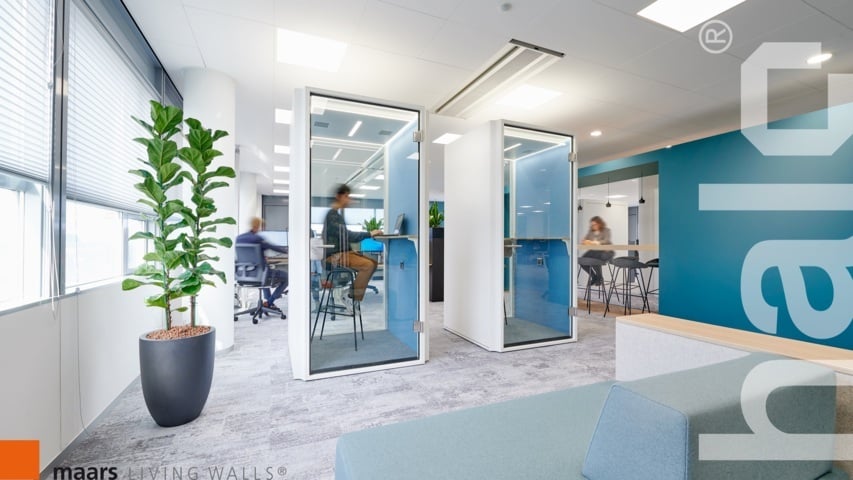
Who is Most Eligible for a Sales Career in the Demountable Walls Industry?
Architectural product sales are a niched career in which not all salespeople may be a perfect fit. The ones who are most eligible for a sales career in architectural products are professional people who have a passion and desire for architectural products, including, but not limited to, specialty glass, ceiling systems, flooring systems, specialty door systems, modular, prefab, sustainable construction solutions, demountable walls, demountable glass partitions, and partition systems.
Professionals who come from the following background are most likely to flourish within this vertical:
- Project Manager, Owner Rep Firms, and Project or Cost Managers who work to oversee construction projects for end-user clients.
- Architectural Product Reps from manufacturers or independent rep groups, such as acoustic product solutions, specialty glass, ceiling systems, flooring systems, specialty door systems, modular, prefab, or sustainable construction solutions.
- Contract Furniture Dealers and Sales Reps who have an interest in new growth opportunities in the walls or construction niche.
- Acoustic Consultants, Acoustic Engineers, or Salespersons in this field who have an interest in acoustics and who are considered when specifying architectural products and wall systems.
- Designers, Engineers, and Architects who have experience working on commercial projects in business segments of corporate office, healthcare, or higher education. with a strong understanding of construction.
- General Contractors or Sales, Business Developers, and Project Managers in the construction industry working within Law Firms, Financial Institutions, Energy, Biotech or Pharma, and Higher Education sectors.
- Project Managers, Project Support, and Cost Managers who work to oversee construction projects for end-user clients (particularly commercial interiors, and architectural products).
Who is Hiring for this Type of Role?
If you believe you have what it takes to succeed in architectural product sales, you can be the face of the leading provider of demountable walls in commercial and residential properties across Fort Worth, Dallas, and you have the impressive ability to connect with and maintain relationships to dealers, architects, and direct buyers, we are looking for you!
Apply to become the next Regional Sales Manager in the DFW area for demountable wall systems sales, and be part of a growing global company specializing in modular wall solutions.
Wrapping It Up: Selling Demountable Walls in Dallas Fort Worth
Architecture and construction are fast-growing industries that offer vast opportunities in sales for both products and services under these sectors. Selling architectural products, such as demountable walls in Fort Worth, Dallas is not just about dealing with one person. More importantly, you have to be able to build relationships with the entire team or group of people involved in the whole process, including the architects, interior designers, dealers, contractors, and commercial and residential clients. If you have a strong identity as a trusted sales professional for demountable walls and a good relationship with prospective buyers and teams, you will be the go-to provider for demountable walls within the FW Metroplex territory in Dallas.
As you embark on this journey, keep your long-term vision in mind and remain adaptable to any changes that may happen. If you are looking for sales professionals in Dallas whom you can outsource for your startup company, it is important to look in the right places and work with a reliable company. Sales Recruiters Dallas can help you find and recruit top sales talents with the right skills and experiences that match your needs and requirements. Simply contact us to share your requirements with our team or post the details of your job vacancy on our platform and wait for applications from talented sales representatives in Dallas.

